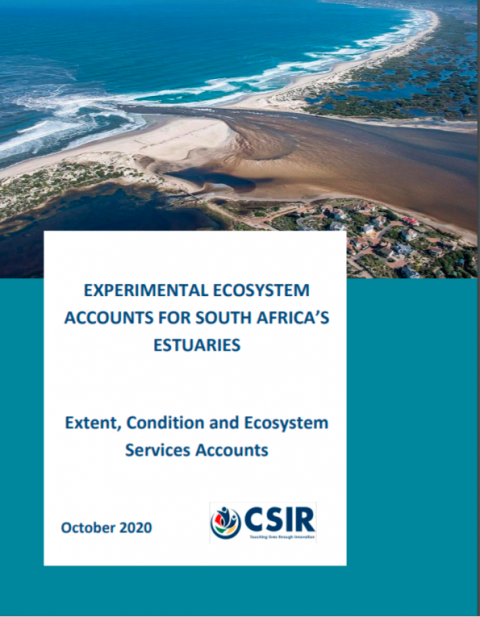Experimental Ecosystem Accounts for South Africa's Estuaries: Extent, Condition and Ecosystem Services Accounts

Document Summary:
Estuaries constitute highly diverse habitats in the coastal space providing disproportionally high socio-economic benefits to society per unit area compared to other
natural systems (e.g. nursery areas for important fisheries, carbon sequestration). Estuaries, thus, form part of the set of small high-value ecosystem types ;ф ϱй of South Africa’s territoryͿ that function as critical ecological infrastructure that should be prioritised for planning, management and protection. Indeed, so critically important are these sensitive
ecosystems that South Africa’s National Environmental Management: Integrated Coastal Management Act ;No. Ϯϰ of 2008) (ICM Act) explicitly distinguishes estuaries as being unique ecosystems of exceptional value warranting dedicated management protocols and planning processes. Stemming from their disproportionally high socio-economic value, it is critical to prepare their ecosystem accounts separate and not aggregate these systems within larger freshwater or marine ecosystem accounts – running the risk of grossly under-valuating, or masking, their ecosystem service benefits
to society.
It is within this context that the CSIR, in collaboration with DEFF and the Nelson Mandela University (NMU), undertook this research to develop ecosystem accounting methodologies for South Africa’s estuaries and to prepare the first extent, condition and ecosystem services accounts for this often over-looked ecosystem realm. The study largely made use of available country-level information generated as part of the recently completed National Biodiversity Assessment 2018. The work was undertaken in consultation with SANBI and Stats SA through a range of interactive workshops and reviews, including presenting preliminary results (e.g. National Estuarine Condition Index findings) for discussion at the
first Natural Capital Accounting Forum hosted by Stats SA in 2019.
This report is published as a discussion document to contribute to advancing the knowledge on NCA through application in a developing country context. It is envisaged that the research findings presented here will be used for, and enriched by, further engagement with global and local Natural Capital Accounting processes (e.g. development of South African Oceans Accounts).
Link to an External Document:
